
We are thrilled to announce that Innovation Group has achieved an incredible milestone, three major industry awards in just a few months. This is a proud moment that reflects the exceptional talent, innovation, and dedication of our teams across both the motor and property divisions.
Following our recent win of Claims Service of the Year (Motor) at the Insurance Times Claims Excellence Awards 2025 and Claims Initiative of the Year (Property) at the British Insurance Awards 2025, we have now been named Claims Service Provider at the Insurance Times Tech and Innovation Awards 2025.
In May 2025, our Third-Party Intervention team in the motor division was honoured with the prestigious Claims Service of the Year – Motor award.
In July, our groundbreaking EKS solution for subsidence claims took home the title of Claims Initiative of the Year, recognising the innovative, customer-centric approach that is transforming the property claims experience.
Now in September, the EKS solution has once again been recognised, earning us the Claims Service Provider of the Year award at the Tech and Innovation Awards. This solution represents the culmination of many years of dedication from both Richard, Allan Tew and their team. We are absolutely delighted that their creativity, resilience, and relentless commitment to delivering innovative solutions to the insurance market have been recognised with such a prestigious honour.
A special thanks to Richard Rollit and Craig Fookes, who were there on the evening to collect the award on behalf of Innovation Group, which was presented by Shaun Williamson.
The judges commented; “They are approaching the issue from a unique perspective. They’ve thoroughly evaluated how to address a serious structural and insurance challenge in a non-invasive way. It’s a truly distinctive offering.”
John Watson, Managing Director, UK Insurance commented; “To be recognised in both the property and motor spaces is a huge honour and a true testament to the passion, innovation, and hard work of our people. A huge thank you to everyone who has been a part of this journey – this achievement belongs to all of us.”
We extend our sincere thanks to the British Insurance Awards, the Insurance Times Claims Excellence Awards and Tech and Innovation Awards for these recognitions, and our warmest congratulations to all fellow winners and finalists.
We’re proud to be triple award winners and even prouder of the incredible teams that made it happen.
Media Contact:
Sarah Middleton
Marketing Manager
salesandmarketing@innovation.group
HDI Insurance and the Solvd Group, a global leader in digital solutions for claims and repair management, are entering into a long-term strategic partnership. At the core of the collaboration, HDI Insurance will in future make use of the Solvd Group’s processes and services in the areas of repair shop networks and claims analysis. Together, both partners aim to further develop these services and set new standards.
As part of the partnership, the Solvd Group will acquire SSV Schadenschutzverband GmbH from HDI Insurance and integrate it into its service portfolio in order to further expand its business with private customers, fleets, and OEMs.
Going forward, the Solvd Group and its subsidiaries – including ControlExpert and Innovation Group – supported by SSV Schadenschutzverband GmbH, will take over key services for HDI Insurance such as repair shop management and invoice verification. The collaboration is designed for the long term and secures both the expertise of SSV employees and the proven services of the repair shop network.
For HDI Insurance, the partnership offers the opportunity to realize economies of scale and to leverage innovations in the repair market more quickly. Cooperation with the Innovation Group’s repair shop network ensures even broader regional coverage and improved services for HDI customers. The claims platform Gateway efficiently connects insurers, repair shops, and partners, integrating all processes in claims and repair management. This ensures clear, digital workflows that also benefit repair shop partners through more assignments, an expanded customer network, and reduced administrative effort.
The Solvd Group views the partnership as an important step in further expanding its end-to-end claims and repair management. With the help of modern technologies and artificial intelligence, all process steps will be interconnected—from claims reporting through to full repair. The Solvd Group’s vision: enabling claims settlement in under one day.
Statements on the partnership:
Sebastian Lins, Chief Markets Officer, Solvd Group says: “The partnership with HDI Insurance is a strong signal to the market: it shows that leading insurers place their trust in our experience, our technological expertise, and our integrated solutions. Together, we are setting new benchmarks in claims management—efficient, transparent, and future-ready. For us, this step is further proof that as a neutral and reliable partner, we can create added value for the entire industry.”
Christoph Kemmner, Head of SHUK Claims at HDI Insurance and Managing Director at SSV Schadenschutzverband GmbH, adds: “With the Solvd Group, we are actively shaping the future of claims management. By combining modern digital infrastructure with the long-standing expertise of SSV Schadenschutzverband GmbH, we are setting new standards in service and process quality. This partnership enables us to further strengthen our excellent claims service while keeping contributions stable for our customers.” The Solvd Group unites market-leading companies such as ControlExpert, GT Motive, Innovation Group, and, in future, SSV Schadenschutzverband GmbH under one roof. With decades of experience and cutting-edge technology—including artificial intelligence—the group delivers pioneering solutions for claims and repair management.

What is Greenwashing?
Greenwashing is the practice of creating a false or misleading impression about how environmentally friendly a product, service, or process really is. Companies use this marketing tactic to capitalise on the rising demand for sustainability, often exaggerating their eco-friendly claims without making meaningful changes.
In the subsidence industry, greenwashing can occur when repair methods, materials or processes are marketing as sustainable or environmentally beneficial, but in reality, they provide little to no genuine environmental advantage.
But how does this apply to the subsidence industry? Below is a real-world example:
Balancing Tree Preservation and Subsidence Claims
The Challenge: Tree Removal vs Sustainable Subsidence Solutions
In recent years, insurers have faced increasing accusations of greenwashing over the removal of mature, often protected trees to mitigate subsidence risks. Subsidence occurs when the soil beneath a building’s foundation shifts or contracts, commonly due to tree roots extracting moisture from clay-based soils.
While insurers emphasise the need for effective and cost-efficient solutions, environmental campaigners argue that widespread tree removal undermines broader sustainability commitments. The debate has sparked national attention, with protests erupting in Fareham, Cowfold, and Wivenhoe, where campaigners have fought to save mature oak trees from felling.
Protesters claim that insurers are prioritising cost savings over environmental responsibility, while insurers argue that alternative engineered stabilisation methods, such as underpinning or soil moisture management, are often prohibitively expensive and not always viable. The controversy highlights the delicate balance between environmental preservation and the practicality of subsidence claims management – a challenge that continues to shape the industry’s approach to sustainability.
The Debate: Weighing Both Sides
A recent case in Fareham highlights the complexity of balancing subsidence management and tree preservation. The local council approved the removal of a row of protected oak trees, each subject to Tree Preservation Orders (TPOs), citing concerns that rejecting the application could leave them exposed to claims exceeding £225,000.
Insurers defend their approach, stating that while they recognise the amenity value of trees and consider alternatives such as pruning, relying solely on engineered stabilisation would lead to significantly higher premiums for homeowners. They argue that tree removal remains the most cost-effective and practical solution in many cases.
However, the decision has faced strong political and public backlash. Local MP Suella Braverman criticised insurers, stating:
“Insurance companies have pressured local authorities into felling perfectly healthy trees with TPOs at the first point of contact.”
Braverman also pointed to ongoing discussions between the Association of British Insurers (ABI), Defra, and Forestry England, aimed at improving industry protocols for addressing subsidence linked to protected trees.
This case underscores the ongoing tension between insurers, policymakers, and environmental advocates.
Current Initiatives: The JMP and ABI Efforts
The Association of British Insurers (ABI) is currently reviewing the Joint Mitigation Protocol (JMP), a framework designed to standardise evidence requirements and procedures for Loss Adjusters and Local Authorities when dealing with subsidence caused by council-owned trees. While the updated JMP will establish clear evidential standards, it will not alter the legal liability of Councils, which remains rooted in their duty to abate legal nuisances caused by vegetation.
At the heart of this challenge lies a long-standing legal principle: property owners are responsible for ensuring their trees do not cause damage to neighbouring properties. If tree roots are proven to be the primary cause of subsidence, the property owner – whether a private homeowner or a local council – is legally obligated to remediate the issue, which often results in tree removal.
Balancing Environmental and Cost Considerations
Insurers argue that removing trees to stabilise a property has several advantages:
However, critics push for a more balanced approach, particularly when dealing with high-amenity trees protected by Tree Preservation Orders (TPOs). They argue that insurers should explore alternative solutions before resorting to tree removal, ensuring that sustainability considerations are genuinely factored into decision-making.
Possible Solutions and the Role of Legislation
Some insurers have already adopted policies against removing ancient or veteran trees, acknowledging their environmental, ecological, and cultural significance. However, to further address greenwashing concerns while maintaining fairness and practicality, the ABI could explore the following initiatives:
Voluntary Codes of Practice – Insurers could commit to a formal industry standing that prioritises tree preservation wherever possible, particularly for protected and high-amenity trees. This would reinforce sustainable claims practices whiles ensuring insurers consider alternative mitigation methods before resorting to removal.
Legislative Change: Article 5 Certificates – A potential reform could introduce Article 5 certificates, which would provide councils with financial protection when refusing tree removal for exceptional cases. Under this system, councils could preserve significant trees without facing liability for subsequent property damage, creating a more balanced approach between subsidence risk management and environmental preservation.
Conclusion: Striking the Right Balance
The debate surrounding tree removal and subsidence highlights the complex intersection of environmental, financial, and legal considerations. A balanced approach is essential – one that safeguards both property integrity and environmental preservation.
While voluntary industry codes could provide an immediate step toward more responsible practices, long-term solutions may require legislative reform, such as the reintroduction of Article 5 certificates. This would offer councils a sustainable and equitable framework to protect significant trees without bearing the financial burden of potential property damage claims.
Ultimately, collaboration is key. Insurers, councils, and policymakers must work together to align competing priorities, ensuring that subsidence management evolves in a way that protects both homeowners and the natural environment.
According to the Association of British Insurers (ABI), UK motor insurers paid out a record £11.7bn in claims during 2024 — a 17% increase on the previous year. The average private motor insurance claim rose by 13% to approximately £4,900, with costs peaking at £5,300 in Q4 alone. This is despite an overall drop in claims frequency being reported across the market.
In 2023, total motor claims stood at £9.9bn, already up 18% year-on-year from £8.4bn in 2022. That period also saw a 31% increase in vehicle repair costs, reaching £6.1bn, while replacement vehicle expenses rose 35% to £597m.
This sustained inflationary pressure highlights the urgent need for robust, end-to-end claims procedures, particularly in managing third-party exposures. With credit hire, repair delays, and extended off-road times driving up third-party costs, having proactive controls in place is more critical than ever.
Key procedural pillars include:
“We work closely with our partners to provide market leading solutions,” said Cath Hulme, Operations Director Motor. “We have developed a proven, results-driven proposition that delivers tangible financial benefits for both our clients and our own operations. I’m delighted to share that our strategic approach has enhanced operational efficiency, increased third-party capture rates, and improved the end-to-end claims experience.”
“In addition, our strong focus on employee engagement and culture has boosted morale, improved retention, and created a high-performance environment that supports service excellence.”
To learn more about our Innovation Group’s award-winning claims management solutions, email: salesandmarketing@innovation.group
Published on ILC (Managing escalating claims costs: the case for robust third-party control – I Love Claims)
Thirty kind-hearted volunteers have joined forces to complete their very own DIY SOS project at a Brownhills home for children with complex needs.
Loss adjusters from leading insurer Aviva swapped their day jobs for paint brushes, trowels and shovels as they pitched in to help drainage, geotechnical and subsidence specialists from Innovation Group plc to transform an outside space at one of Progress Care’s ten homes.
It is the first time the two specialists in the insurance world have come together on a challenge and in just six hours they successfully managed to fix block paving, build planters and raised beds, improve wheelchair access and install a number of sensory boards and new swings.
The biggest task of the day was also completed in style, with over 200 wheelbarrows of soil removed to create a new, safer ground floor home for the trampoline.
More than 180 hours of time went into the garden makeover, which will now allow the eight children who live in the home to enjoy a great outdoor space and lots of fun activities that will stimulate their senses.
Claire Rogers, Managing Director of Progress Care, is keen to see the future impact of the project: “Austerity and funding cuts have caused our sector a lot of issues and we are always looking to partner with kind-hearted businesses that can help us deliver the best possible facilities and living experiences for the children we look after.
“All of them have complex needs and physical disabilities and the garden is such an important place for them to relax, play and, in some cases, learn. The outside space at our Brownhills home needed some ‘TLC’, so we were delighted when a chance conversation with Aviva employees turned into this fantastic DIY SOS.”
She went on to add: “I can’t believe the difference and how quickly it was achieved with the volunteers all working together to bring the garden to life. Our children are already enjoying spending more time outside, as this has become so important after we spent a lot of the last two years isolating due to Covid-19.”
Aviva, a leading general insurer in the UK, is committed to supporting the local communities it operates in and offers all employees up to three ‘volunteering days’ every year.
When the project at Progress Care was raised, a team of seventeen loss adjustors put themselves forward, travelling the length and breadth of the country to take part.
Due to the complex nature of the DIY SOS challenge, the company reached out to Innovation Group, one of its leading supply chain specialists, to help it with drainage, block paving and subsidence work in the garden.
Tanya Bellamy, Commercial Field and Major Loss Leader at Aviva, commented: “The response to the Progress Care project was fantastic, with many of our volunteers travelling hundreds of miles to take part.
“They really threw themselves into it, working closely with the more experienced Innovation Group staff to paint, dig, plant and repair. It’s a bit different to their day job but judging by all the smiles during the day and the reaction we saw from the children, it was six hours well spent.”
Tony Kilgannon, Regional Manager Northern Division at Innovation Group, added his support: “As soon as I visited the home and met some of the children we’d be helping, I had an emotional attachment to making the outside space as good as it could be, the same attachment that I know the rest of our staff had during the day.
“Working with our good friends at Aviva, we have created a sensory garden in just six hours, making it an accessible, safe and fun space with lots of things to do, whether that is trampolining, playing on the swings, enjoying the 3D spinner or touching the different textures of the flowers we’ve put in.
“The children have very challenging lives, so this project was all about giving them something to smile about and a place where they can experience new things.”
Progress has evolved from offering a small residential and fostering service in 2000 into one of the leading independent providers of specialist social care services in the Midlands.
The company, which employs over 220 people, is committed to preventing family breakdowns by increasing resilience and reducing dependency, by blending a range of community-based services designed to support semi-independent and independent living.
This includes creating ten ‘home from home’ residential properties in Brownhills, Coventry, Derby, Rowley Regis, Walsall, Wednesbury and Wolverhampton.
Claire concluded: “A big thank you to Aviva and Innovation Group for what they have given the children.
“Employees from the two businesses have already agreed to help us with more challenges on our properties and we’d also appeal to other companies – looking for ‘feel good’ transformational projects for their staff – to come and talk to us.”
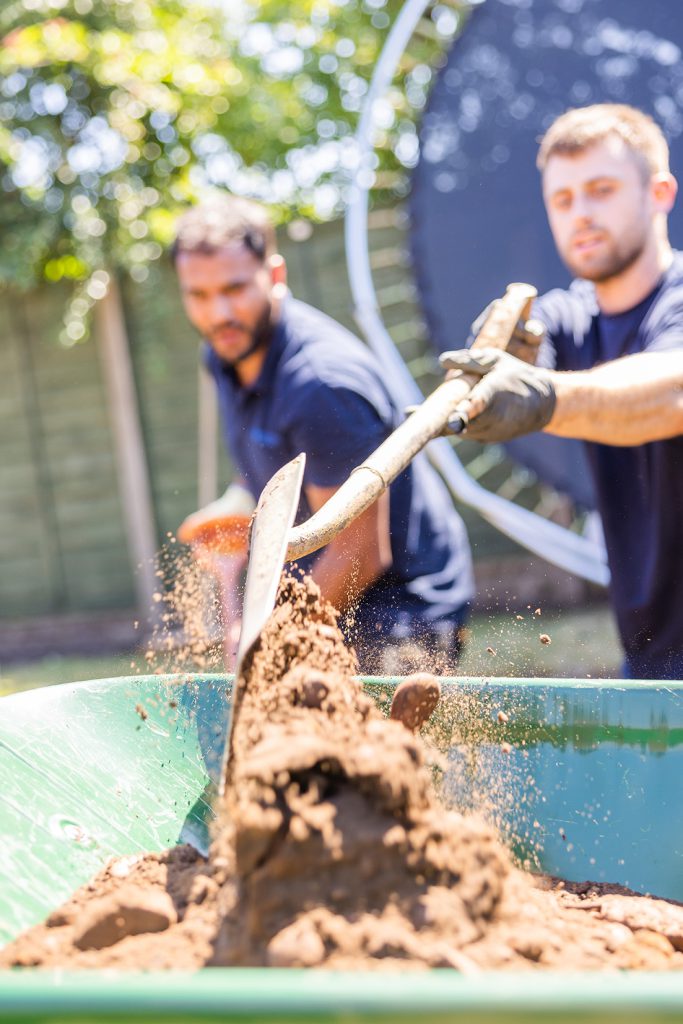
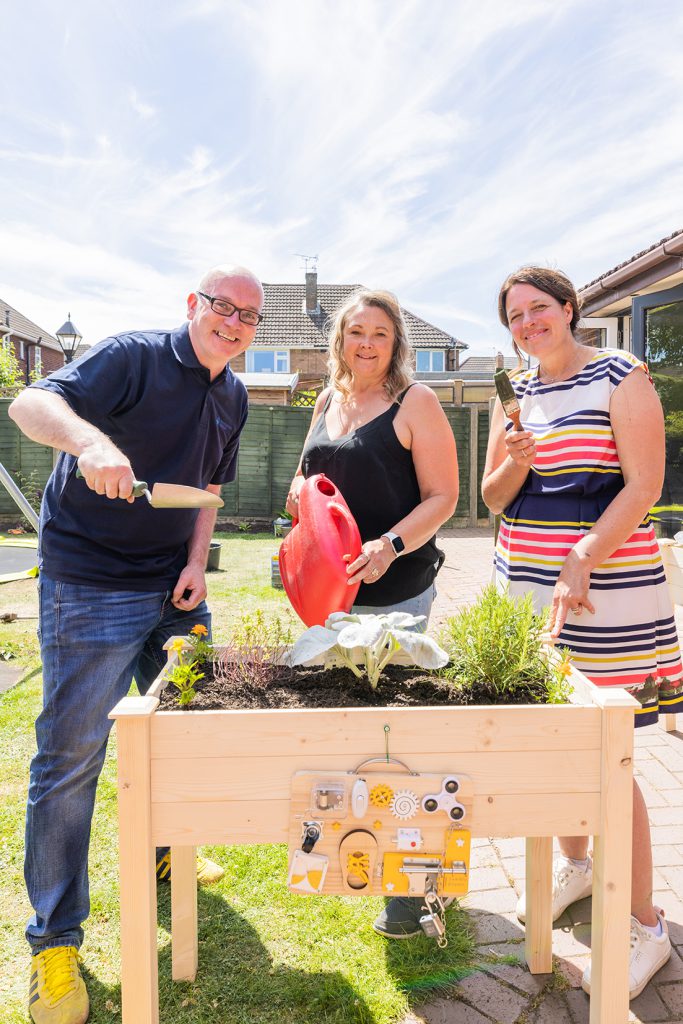
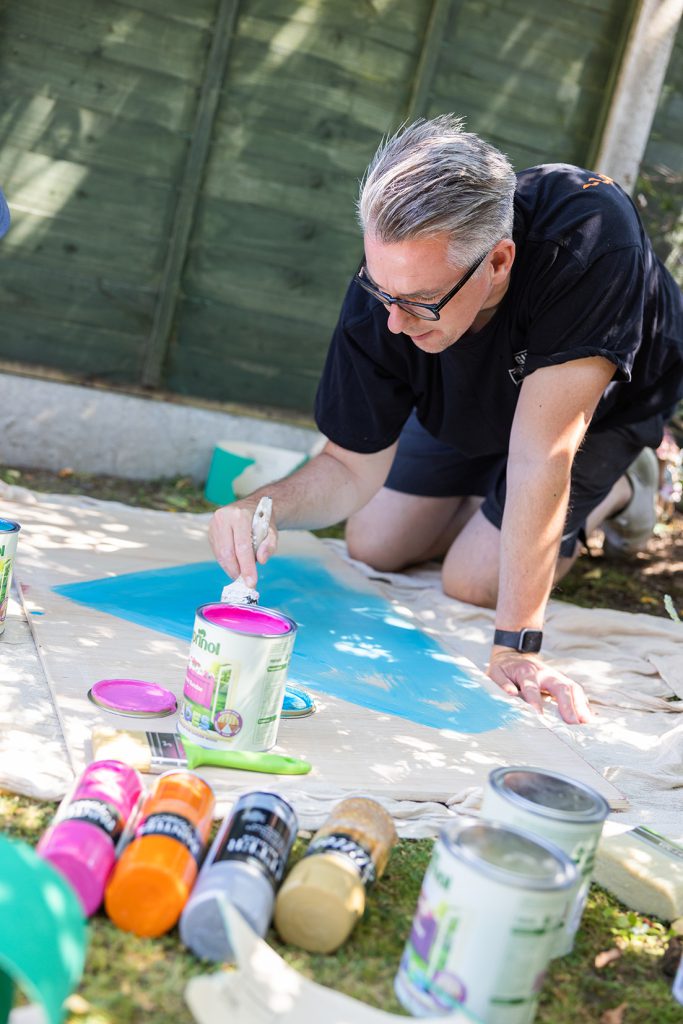
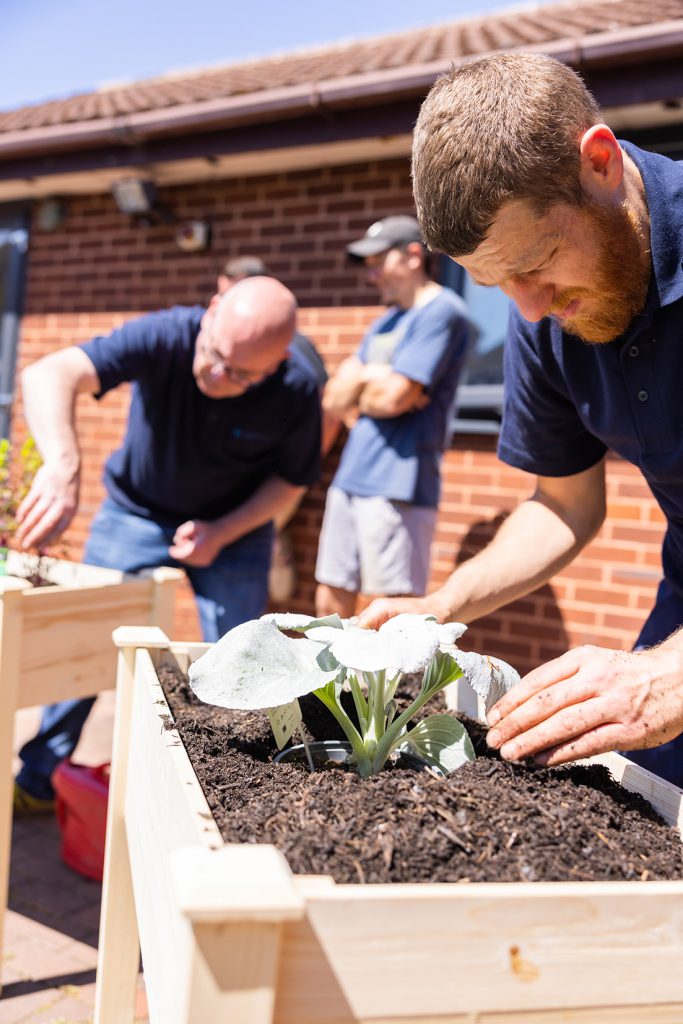
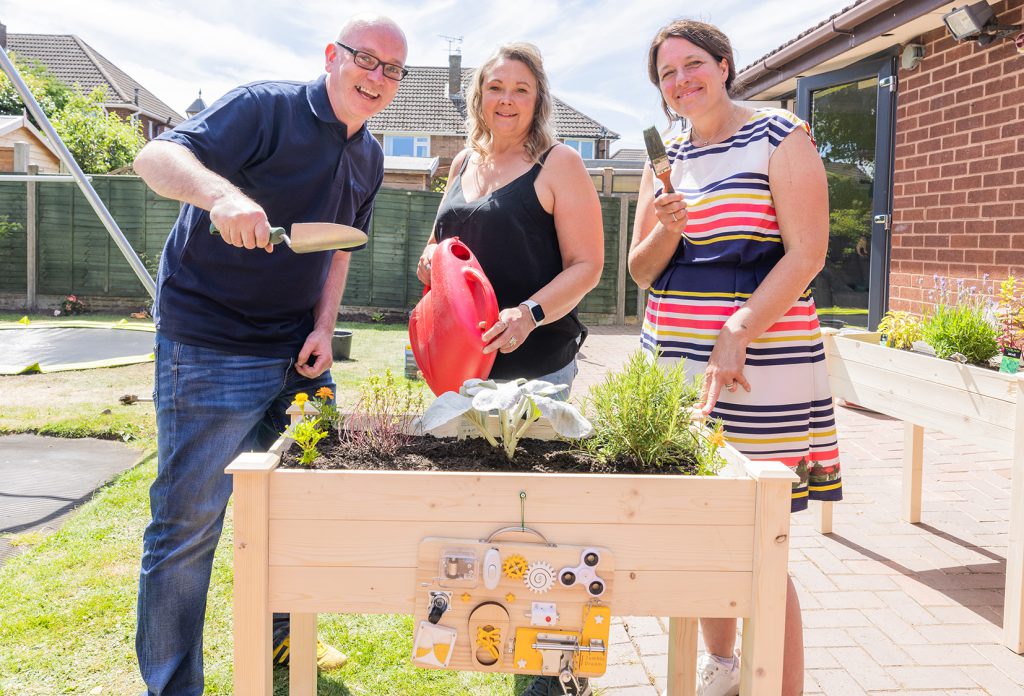
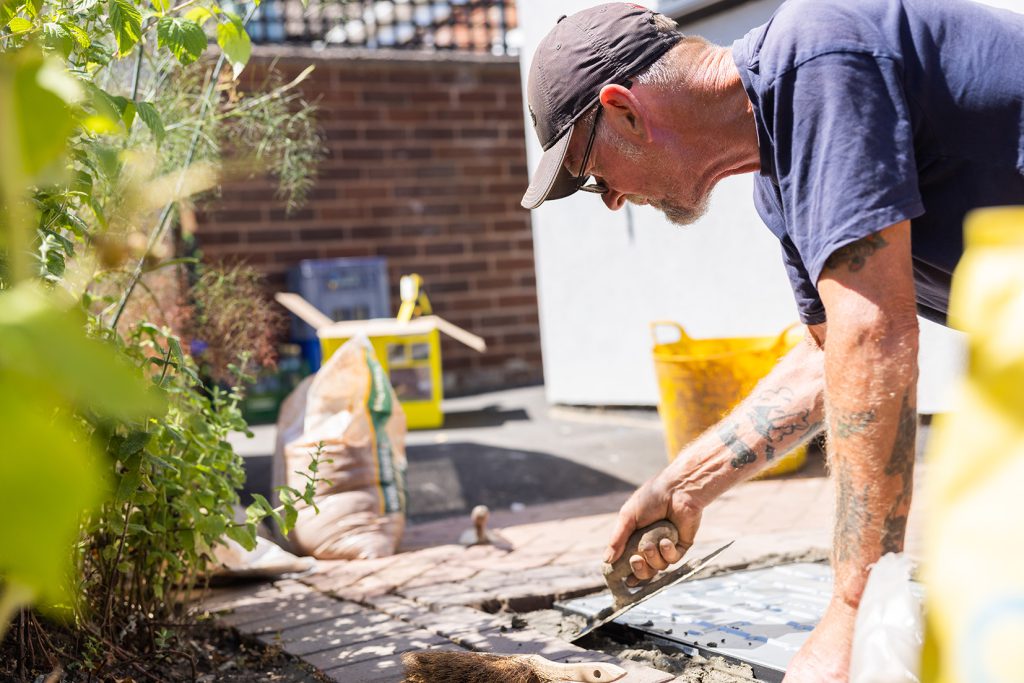
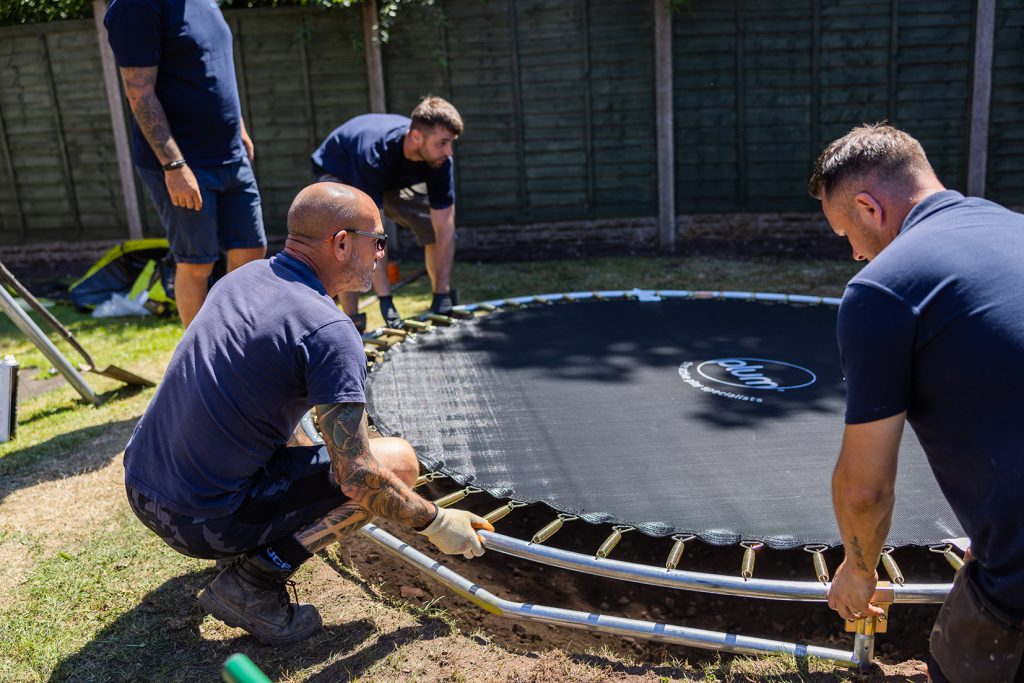
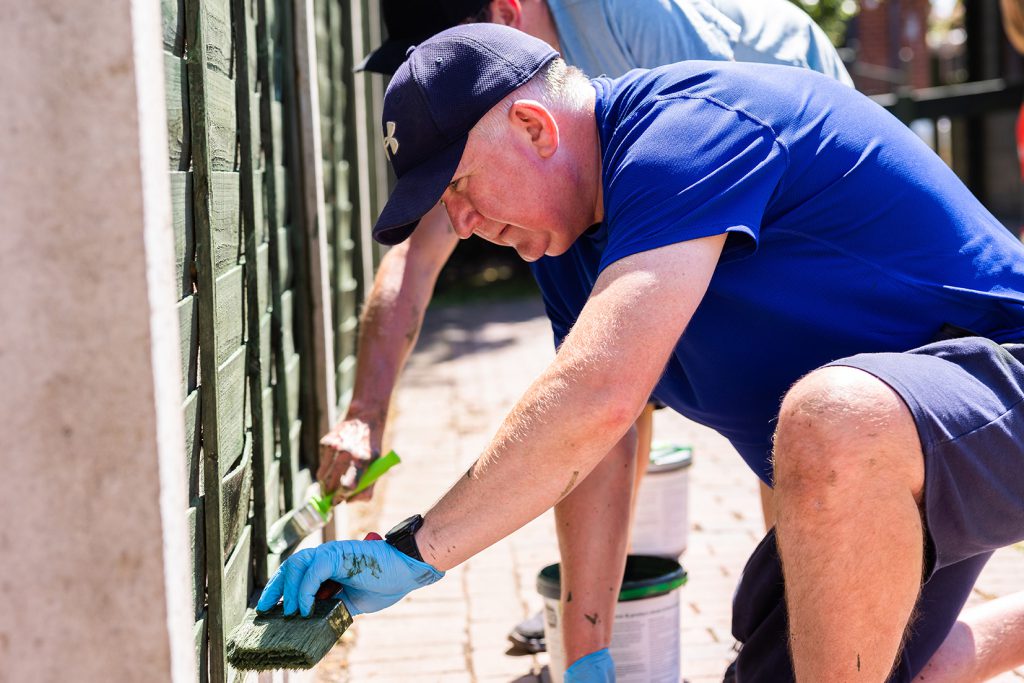
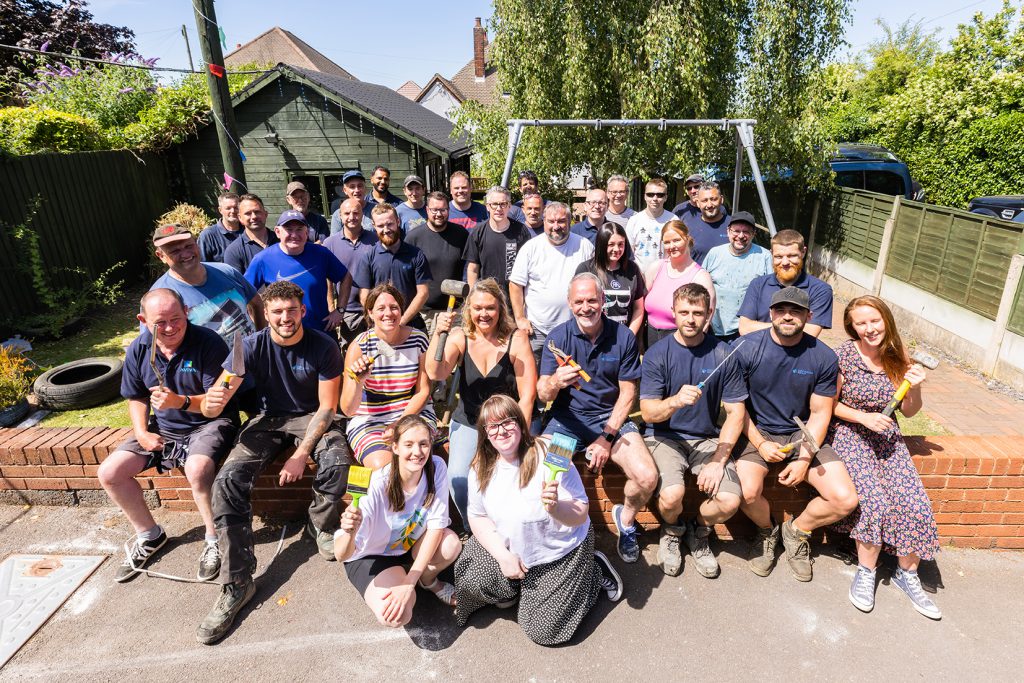
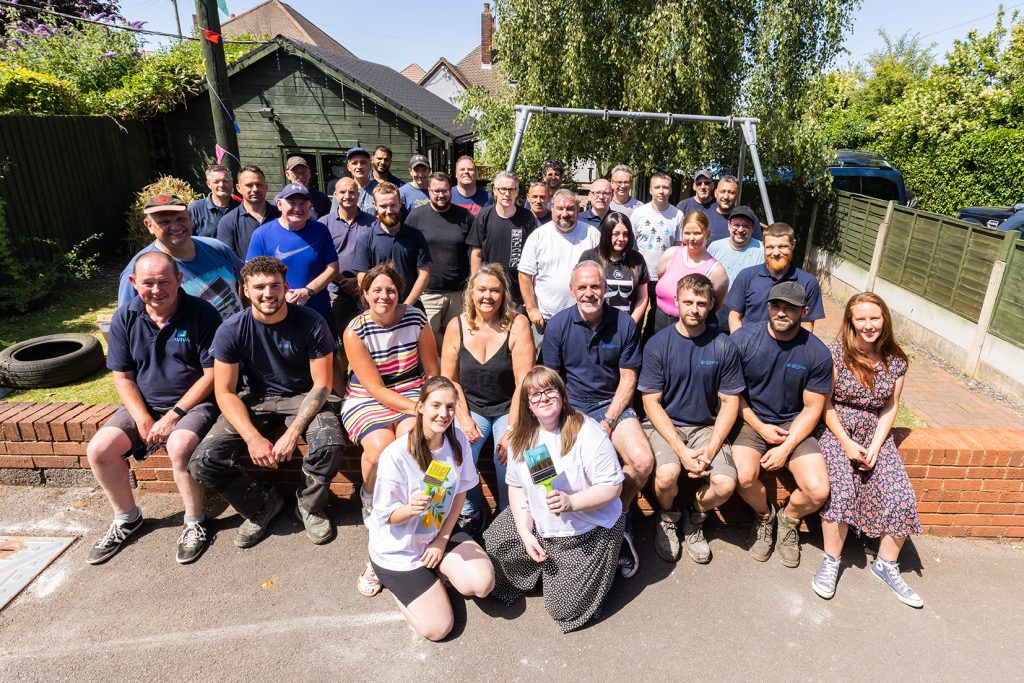
For further information, please visit www.progresscare.co.uk
STUTTGART, Germany, April 28, 2021 (Newswire) – Last Thursday at the German Digital Awards 2021 organised by Bundesverband Digitale Wirtschaft (BVDW), Gateway, the AI workflow engine, received 2 awards: a bronze for Digital Transformation and a bronze for Digital Commerce, User experience. The German Digital Award is given every year for creative and innovative achievements in 10 categories and 31 sub-categories. Gateway was recognised alongside the innovations from Hamburg Port Authority, H&M, Mercedes Benz and Zalando. The expert jury commended Gateway for its innovation and user experiences, a digital revolution to the current process for insurance claims and repairs.
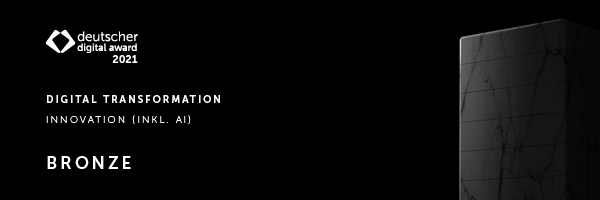
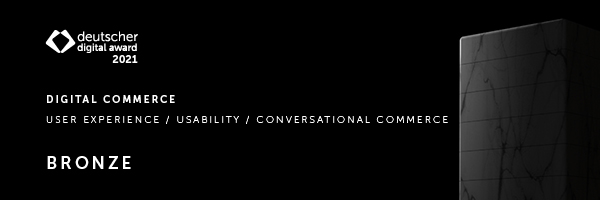
“I’m truly grateful for the award Gateway received, especially among so many other top-class applicants. It’s a great reassurance that our software is future-proof,” says Markus Stumpp, Managing Director, Innovation Group Fleet & Mobility GmbH.
“We’re delighted to have Gateway recognised for the disruptive nature so soon after its launch. The claim and repair processes are lengthy and overly complicated, we focused on simplifying and bringing them to the 21st century. Gateway provides real-time data and transparency so that there’s no more back and forth emails and calls between the claimant, insurer and the repairer.” says Matthew Whittall, CEO Germany, Innovation Group.
Gateway enables mobile self-service to policyholders and drivers, and integrates with insurer, fleet owner, car manufacturer and repair shop processes to provide a real-time single source of truth. Artificial Intelligence at the core of Gateway drives the claim and repair workflows and notifies all parties involved of the changes and progression. It enables insurance companies to handle the entire claims process end-to-end via a simple online platform. Workshops can simplify calculation, ordering and billing processes that significantly reduce the administrative costs and times. It also presents the never seen levels of transparency, security and data insights in the insurance and repair industries.
Gateway launched in February 2021 in Germany and proved to reduce the average time between the damage report and repair booking from 2-3 days to less than 24 hours. The current pilot phase consists of 2 insurers and over 1100 workshops. “In May we want to activate more partners and gradually drive the digital transformation forward,” said Stumpp. By autumn, more than 40 participating insurers should be able to process their claims via Gateway.
Learn more about Gateway: www.innovation.group/gateway-technology
About Innovation Group
Innovation Group resolves car or home damage and claims on behalf of insurers, fleet companies and carmakers. Through AI workflow engine Gateway, white-label claim specialist teams and integrated repairer network, Innovation Group provides efficiency and cost savings to over 1,200 clients in the US, UK, Germany, Spain, Australia and South Africa. For over the 20 years, Innovation Group has helped its clients deliver on their promise to the policyholders and drivers by processing claims and damage repairs with exceptional customer service and disruptive tech, that can automate the process end-to-end.
To watch the award submission go to: gewinner.deutscherdigitalaward.de/gewinner/digital-commerce-user-experience-usability-conversational-commerce-bronze/gateway-digitale-schadensteuerung